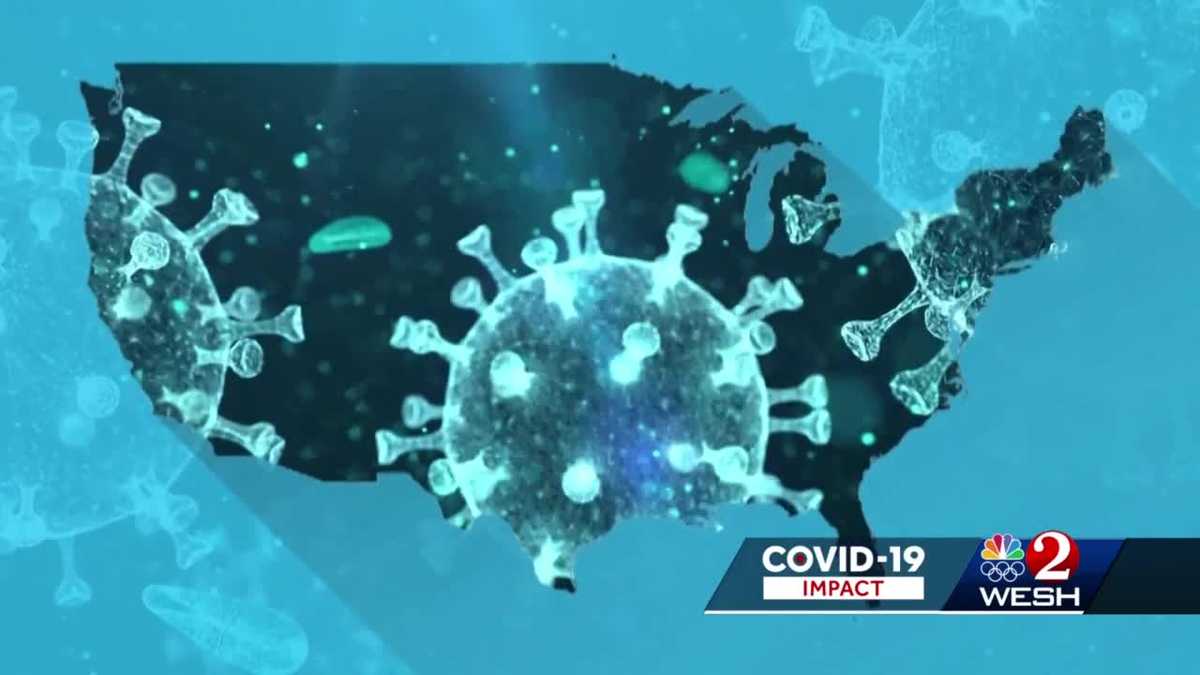Local testing sites are packing people in, and according to some researchers from the University of Florida, this wave in new COVID-19 cases will only continue to increase in the coming weeks.By mid-afternoon Tuesday, the line for the COVID-19 testing site at Barnett Park stretched well past the two-hour wait mark, and staffers were forced to close it off.One man in the line said he fell ill last night and wasn’t surprised.”I am vaccinated, two vaccines. I’m not surprised because omicron, people who are vaccinated are getting it,” the man said.Since the beginning of December, the number of new COVID-19 cases in Florida has jumped.”Florida has had a 228% increase in cases… At the beginning of the month, we saw just under 10,000 cases in an entire week, and over the past four days alone, we’ve seen 36,000 cases,” said Dr. Jason Salemi, an associate professor of epidemiology at USF. Researchers at the University of Florida released a model Monday that projects the omicron variant will lead to 40,000 new cases a day in Florida by its February peak. That’s around 75% higher than what the state saw during the peak of the delta variant.But they also predict the new COVID-19 wave will be less lethal for Floridians than delta.A graphic from the UF report shows the number of new COVID-19 infections per day, both symptomatic and asymptomatic. It predicts a significant peak in February due to omicron.Another graphic shows Florida’s deaths from COVID-19. The deaths in the first quarter of 2022, when the omicron variant is expected to surge, are predicted to be less than they were from the other variants.Dr. Jason Salemi, a professor of epidemiology with USF is quick to say predictions are not guarantees. He believes actions people take now can influence what’s to come.”How much they rise, in whom they rise and how much severe illness, again I’d like to believe it has a lot to do with the steps that we put in place and all of the mitigation efforts we choose to adopt,” Salemi said.An important note about the UF model, the researchers noted: Even though vaccine boosters lower the risk of transmission and severity, they did not consider boosters in their analysis because relatively few Floridians have received them at this point.
Local testing sites are packing people in, and according to some researchers from the University of Florida, this wave in new COVID-19 cases will only continue to increase in the coming weeks.
By mid-afternoon Tuesday, the line for the COVID-19 testing site at Barnett Park stretched well past the two-hour wait mark, and staffers were forced to close it off.
One man in the line said he fell ill last night and wasn’t surprised.
“I am vaccinated, two vaccines. I’m not surprised because omicron, people who are vaccinated are getting it,” the man said.
Since the beginning of December, the number of new COVID-19 cases in Florida has jumped.
“Florida has had a 228% increase in cases… At the beginning of the month, we saw just under 10,000 cases in an entire week, and over the past four days alone, we’ve seen 36,000 cases,” said Dr. Jason Salemi, an associate professor of epidemiology at USF.
Researchers at the University of Florida released a model Monday that projects the omicron variant will lead to 40,000 new cases a day in Florida by its February peak. That’s around 75% higher than what the state saw during the peak of the delta variant.
But they also predict the new COVID-19 wave will be less lethal for Floridians than delta.
A graphic from the UF report shows the number of new COVID-19 infections per day, both symptomatic and asymptomatic. It predicts a significant peak in February due to omicron.
Another graphic shows Florida’s deaths from COVID-19. The deaths in the first quarter of 2022, when the omicron variant is expected to surge, are predicted to be less than they were from the other variants.
Dr. Jason Salemi, a professor of epidemiology with USF is quick to say predictions are not guarantees. He believes actions people take now can influence what’s to come.
“How much they rise, in whom they rise and how much severe illness, again I’d like to believe it has a lot to do with the steps that we put in place and all of the mitigation efforts we choose to adopt,” Salemi said.
An important note about the UF model, the researchers noted: Even though vaccine boosters lower the risk of transmission and severity, they did not consider boosters in their analysis because relatively few Floridians have received them at this point.
